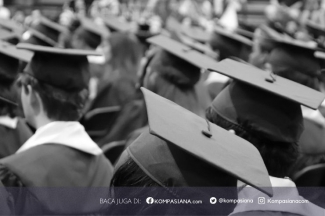The management of educators and educational personnel is one of the most strategic dimensions in educational organizations. Without effective human resource management, even the most advanced educational technologies and infrastructure cannot guarantee success. Human beings teachers, administrators, and staff remain the central agents who design, execute, and evaluate all educational processes. In this sense, education is not merely a system of knowledge transmission but also a matter of managing people as the most valuable resources.
From a managerial perspective, human resources in education are categorized into educators and educational personnel. Educators, primarily teachers and lecturers, are directly responsible for teaching, mentoring, and assessing learners. Their role is pivotal in shaping not only academic competence but also the character of students. On the other hand, educational personnel, including administrators, supervisors, librarians, laboratory technicians, and others, function as the supporting system that ensures educational processes run effectively. Both groups complement each other in achieving the overarching goals of national education.
The scope of human resource management in education encompasses a wide range of activities. These include workforce planning, recruitment, selection, orientation, placement, training, performance appraisal, promotion, compensation, and even termination when necessary. Each stage is interrelated and must be conducted systematically to ensure that educational institutions are staffed with competent and committed personnel. For example, recruitment should not only fill vacancies but also anticipate future needs of schools or madrasahs. Similarly, training and professional development are crucial in enhancing teachers' competencies to respond to the rapid changes in curriculum, pedagogy, and educational technology.
An essential aspect of this discussion is the professional status of educators. Teaching is not merely an occupation but a profession that requires specialized knowledge, ethical standards, and continuous dedication. Professionalism demands that teachers embody the values of integrity, responsibility, and commitment to lifelong learning. Educational institutions, therefore, are obliged to provide programs that enhance professional growth, such as workshops, seminars, certification, and career development pathways. Without such support, the quality of education will stagnate, and the demands of the twenty-first century will not be met.
Moreover, the rights and obligations of educators and educational personnel must be recognized and balanced. They deserve fair compensation, legal protection, and career advancement opportunities, but in return, they must uphold professionalism, create conducive learning environments, and maintain the dignity of their profession. This mutual relationship ensures that both individuals and institutions grow together toward higher standards of educational quality.
Conclusion
The management of educators and educational personnel is the cornerstone of human resource development in education. When properly planned and executed, it ensures not only the efficiency of schools but also the long-term quality of national education.
Follow Instagram @kompasianacom juga Tiktok @kompasiana biar nggak ketinggalan event seru komunitas dan tips dapat cuan dari Kompasiana. Baca juga cerita inspiratif langsung dari smartphone kamu dengan bergabung di WhatsApp Channel Kompasiana di SINI
